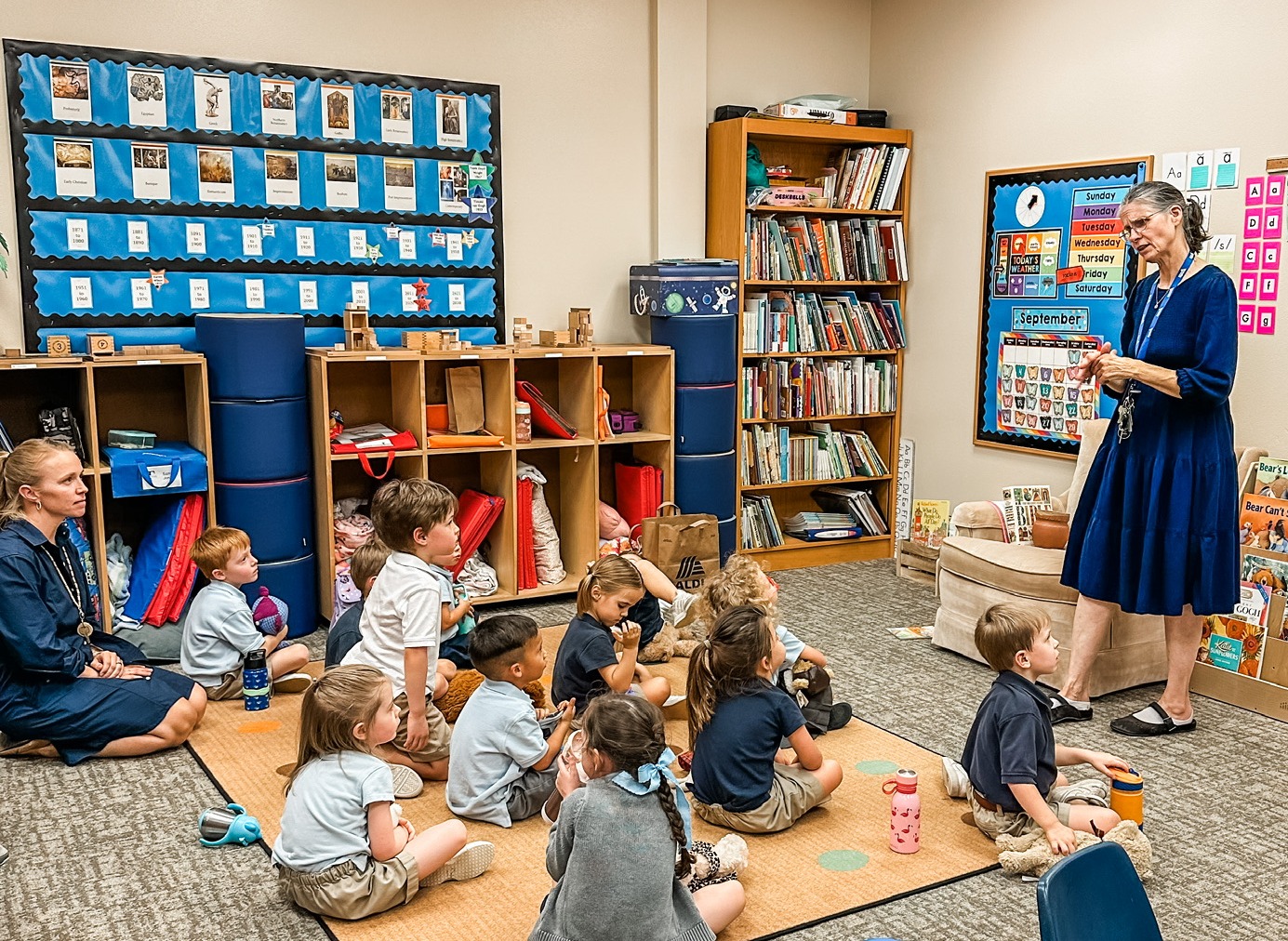Last week, we shared ten practical tips for achieving enduring success and experiencing the wonderful fruit of classical Christian education at Trinitas, This week, we have ten MORE practical tips we've assembled from our teachers which we hope will benefit your family.
Topics: Blog Posts, School Life, Parenting, Classical Education, Scripture, Christian Education, True Education, Parent Involvement, Reading, Homework, Truth, Goodness, and Beauty, Virtue
The best things in life are often also the hardest things in life, and classical Christian education is no exception to this truism. To help Trinitas parents and students achieve enduring success at Trinitas and experience the wonderful fruit of classical Christian education, we've assembled these ten practical tips for success at Trinitas taken directly from our teachers. Simple, practical, but sometimes a bit pointed, we hope these steps are received in the spirit they are offered and are helpful to you.
Topics: Blog Posts, School Life, Parenting, Classical Education, Scripture, Christian Education, Christian Living, Parent Involvement, Homework, Truth, Goodness, and Beauty, Virtue
Christians are people of the Resurrection. Without it, Paul says, “We are of all people most to be pitied” (1 Cor. 15:19). We can be confident that we are eternal beings, that Christ has conquered death and the grave, and that to be absent from the body is to be present with the Lord. We will at our deaths be present with our Lord and Savior because we are people of the Resurrection. But what now? How should we live in light of this truth? To put it plainly, the Resurrection should change the way we approach all of life!
Topics: Blog Posts, Scripture, Christian Living
The Wiseman’s Folly: A Reflection on Foolishness and Wisdom
(This essay was written by Trinitas senior Claire McNeill and published recently in Classis: The Journal of Classical Christian Education.)
What do we picture when we think of a wise man? The image we typically conjure up is a man who is reputable, well-respected in his community, and sought by all for his sagacity. He is a man of considerable rank and influence. In most of our imaginings, he is surrounded by wealth, like Solomon or the Magi. In contrast, what do we picture when we think of a fool? One who is laughed at, scorned; when he is not ignored, he is either despised or held as ridiculous. These associations are firmly fixed in the minds of men; folly and wisdom are the difference between a child and a man, a jester and a king.
Topics: Blog Posts, Scripture, True Education, Christian Living
At a recent Annual Parent Meeting, Trinitas father and board member, Pastor Jon Mark Olesky, reminded us of the timely importance of Christian parents educating their children to engage their world. This is the third of three posts containing his comments.
The teaching needed is what is most often called, “wisdom” (Hb. khokmah). Many compromises will occur in Babylon without this wisdom. In the covenantal framework of Proverbs wisdom means skill in godly living. Proverbs, that often-neglected parenting book, the “father” repeatedly call his “son” to “find wisdom” (Prov 3:13), that is because children aren’t born possessing it, rather, “folly is bound up in the heart of a child” (and yes, “the rod of discipline” is needed to remove it!) (Prov 22:15). No, a foolish teenager doesn’t just “grow out of it,” wisdom must be given and received. Our children’s lives depend on it! “The teaching of the wise is a fountain of life, that one may turn away from the snares of death” (Prov 13:14). It’s the way a young man avoids “the forbidden woman” (Prov 5 and 7), and that is because “the fear of the Lord is the beginning of wisdom” (Prov 9:10).
Topics: Blog Posts, Parenting, Scripture, Christian Education
At a recent Annual Parent Meeting, Trinitas father and board member, Pastor Jon Mark Olesky, reminded us of the timely importance of Christian parents educating their children to engage their world. This is the second of three posts containing his comments.
The context of preparation for Babylonian exile is significant. Providentially, these four youths entered Babylon in (605B.C), having been exiled out of Judah, after the Reforms of King Josiah, which he led until his death in (609 B.C). These young men were not trained under the long list of Apostate Kings of Israel “who did what was evil in the sight of the Lord” (2 Kings 8–17); but under King Josiah, who arguably surpassed David in Kingly righteousness since he had no public scandal (2 Samuel 11), and “before him, there was no king like him, who turned to the Lord with all his heart…according to all the Law of Moses, nor did any like him arise after him” (2 Kings 23:25).
Topics: Blog Posts, Parenting, Scripture, Christian Living
At a recent Annual Parent Meeting, Trinitas father and board member, Pastor Jon Mark Olesky, reminded us of the timely importance of Christian parents educating their children to engage their world. This is the first of three posts containing his comments.
“I don’t want to bring kids into this evil culture” is something I have heard more than once. Well-meaning Christians have long questioned the wisdom of bringing children into a fallen world. And while this hesitation might seem prudent, God doesn’t hesitate to command husband and wife, “Be fruitful and multiply and fill the earth” (Gen 1:28; 9:1). The earth is, no longer a utopian Eden, but a post-Eden wilderness, what the New Testament calls “Babylon” (Rev 17:5, 1 Pet 5:13-14). This Babylonian context isn’t foreign to children raised in covenant homes. The historical nation of Babylon was where the Jewish exiles were sent. Of those exiles, the most notable were four Jewish “youths… Daniel, Hananiah, Mishael, and Azariah of the tribe of Judah” (or their Babylonian names) “Belteshazzar, Shadrach, Meshach, Abednego” (Dan 1:1-7).
Topics: Blog Posts, Parenting, Scripture, Christian Education
If you have stumbled upon this blog, there is a good chance you are trying to make a decision about your child’s education. Should you send her to a public school like most everyone else you know, or should you spring for a Christian school? Make no mistake, this is one of the two or three most important decisions you will ever make. No pressure, right? If you are a Christian, there are a lot of reasons you should consider a Christian education over a secular one. Here are three that top my list.
Topics: Blog Posts, School Life, Parenting, Scripture, Christian Education



.jpeg)




